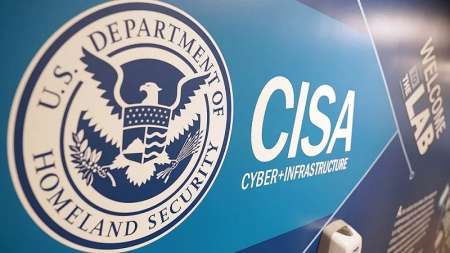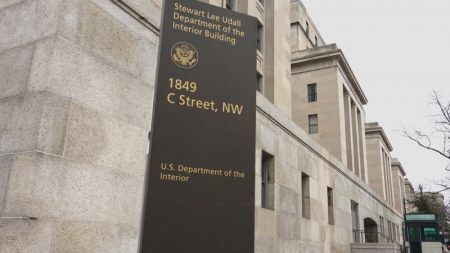Can technology innovation pave the way for better citizen service? On July 21 – we’re going to find out. The countdown to MerITocracy 2022: American Innovation Forum is on. The in-person forum – taking place at the Marriott Marquis in Washington, D.C., from 8:00 a.m. to 6:00 p.m. – will host bipartisan leaders from Congress, the Biden administration, and America’s tech industry to examine the most pressing problems facing citizens in our democracy, and map out creative solutions from the nexus of policy and technology. We invite you to register for MerITocracy today. […]
The Federal government’s Global Food Security Strategy (GFSS) is falling short on information sharing regarding each participating agency’s current or planned spending for the whole-of-government initiative, and could use a shared database to make spending information more readily accessible, the Government Accountability Office (GAO) said. […]
The Cybersecurity and Infrastructure Security Agency (CISA) has notified election officials of software vulnerabilities found in Dominion Voting Systems equipment deployed in several states, but also that the agency has found no evidence that those vulnerabilities have ever been exploited. […]
Congress is due to get a big influx of skilled technologists who will act as advisers to congressional offices courtesy of the TechCongress Congressional Innovation Fellowship. […]
The enduring shift toward at least partial work-from-home arrangements for government employees is creating new workforce possibilities for many agencies, but also new challenges on the technology security front for both Federal and state and local governments, experts said this week. […]
The Cybersecurity and Infrastructure Security Agency (CISA) is looking to set an “aggressive” pace to conduct the rulemaking proceeding necessary to implement recently approved cyber incident reporting legislation, but also indicated today that completion of a rulemaking could be a couple of years away. […]
The Cybersecurity and Infrastructure Security Agency (CISA) is holding a series of public listening sessions aimed at using a community-based effort to advance the conversation around the technologies, policies, and processes required to implement Software Bills of Materials (SBOM), according to a Federal register post published today. […]
The Department of the Interior (DOI) has released a draft solicitation that would offer a single public cloud service provider up to $1 billion to support DOI’s transition to a single hybrid enterprise cloud cluster. […]
According to research from MeriTalk and AP-NORC, just 15 percent of American adults trust the Federal government to do what is right for them and their families all or most of the time. How can our governments at the Federal, state, and local levels regain the public’s confidence by delivering on the promises of major infrastructure programs? […]
Amid an overwhelming and fragmented amount of broadband programs, the Government Accountability Office (GAO) is calling for a unified national broadband strategy. […]
The Space Development Agency at the Department of Defense (DoD) on May 26 announced the award of a $324.5 million contract to General Dynamics Mission Systems to “establish the ground Operations and Integration segment for Tranche 1 of the National Defense Space Architecture (NDSA)” that eventually will feature a constellation of 166 satellites. […]
The National Reconnaissance Office (NRO) has finalized three awards as part of its largest-ever commercial satellite imagery contract effort, marking a historic expansion of NRO’s acquisition of commercial imagery on behalf of the U.S. government. […]
The General Services Administration (GSA) has released a supplemental special notice to go along with its request for information (RFI) on GSA’s intent to establish a multiple-award Blanket Purchase Agreement (BPA) known as the Ascend BPA for commercial cloud services. […]
While the use of AI technologies is proving effective as a tool to help stop cyber criminals, the Federal government continues to faces an uphill road in deploying the technology, a U.S. Secret Service official said this week. […]
The Government Accountability Office (GAO) said in a new report this week that the United States Coast Guard needs to get a better handle on risk evaluations for some of its smaller IT acquisition projects. […]
The Commerce Department’s Bureau of Industry and Security (BIS) has published a final rule in the Federal Register that restricts cybersecurity export controls in an effort to prevent foreign adversaries from accessing hacking tools. […]
The Federal Communications Commission (FCC) has awarded $203.6 million in an indefinite-delivery, indefinite-quantity Application Development Support Services Contract (ADSS) as part of the agency’s IT modernization effort, according to a notice on SAM.gov. […]
The United States Postal Service (USPS) recently opened up a third round of free COVID-19 rapid tests to send to households across the nation. But before the program was announced, the Office of the CIO had just three weeks to stand up a site that had to handle up to 20 million orders a day. […]
As Federal agencies are looking to modernize and undergo enterprise-wide digital transformations, leaders at the Army’s Enterprise Cloud Management Office and the Centers for Medicare and Medicaid Services (CMS) are pointing to changing organizational culture and “having the right conversation” first. […]
The Cybersecurity and Infrastructure Security Agency (CISA) – along with the Department of Homeland Security’s Science and Technology Directorate and the Department of Defense’s Office of the Under Secretary of Defense for Research and Engineering – has released a proposed five-step 5G Security Evaluation Process today for Federal agencies to receive authorization to operate (ATO). […]
The National AI Research Resource (NAIRR) Task Force – a Federal advisory group authorized by Congress in 2020 to explore creating a national resource for AI research and development – issued a new report this week that lays out the beginnings of vision for how a national infrastructure could be established to meet the needs of the U.S. AI research community. […]
The Senate Commerce, Science, and Transportation Committee on May 25 approved a bill that would direct the White House Office of Science and Technology Policy (OSTP) to develop a national strategy for the research and development (R&D) of distributed ledger technologies. […]
While many cybersecurity officials strive to achieve “no risk” when it comes to cyber risk management, officials from NASA this week explained that’s just not possible and suggested that agencies instead focus on managing risks that are important to the mission. […]
The creation of a new police misconduct database, and a further evaluation of the use of facial recognition technologies in law enforcement, are among several foundational elements in President Biden’s executive order on policing issued today on the second anniversary of the killing of George Floyd while in the custody of Minneapolis police officers. […]
State government IT officials said this week they are working to deploy their share of $1 billion of Federal cybersecurity grant funding approved last November by Congress as part of the $1.2 trillion bipartisan infrastructure bill. […]
The Cybersecurity and Infrastructure Security Agency (CISA) is taking a multi-faceted approach to supply chain security, and chief among them is putting in place strong public-private partnerships to maintain supply chain resilience and maintaining high awareness about the sources of supply chain threats. […]
The Cybersecurity and Infrastructure Security Agency (CISA) said today it is “encouraged” by quick Federal agency responses to its May 18 emergency directive to patch or unplug several vulnerable VMware products from agency networks, but did not provide any hard figures on whether agencies met CISA’s May 24 deadline to take action. […]
Can technology innovation – coupled with the boldest kind of leadership – work together to start fixing the most intractable problems facing America? On July 21 – we’re going to find out. The countdown to MerITocracy 2022: American Innovation Forum is on. […]
While concern in some quarters of the tech world continues to grow about how to keep pace with growing data storage demand, the Government Accountability Office (GAO) concluded in a new report that exotic alternatives – think options like synthetic DNA – to fill the gap are probably still years away. […]
Experts from the cryptocurrency and blockchain technology sectors said today they are watching with deep interest for the outcomes of a Biden administration executive order issued in March on the risks and benefits of digital assets in order to gauge the whether the Federal government and Congress will undertake meaningful regulatory changes that would benefit the sectors. […]





























